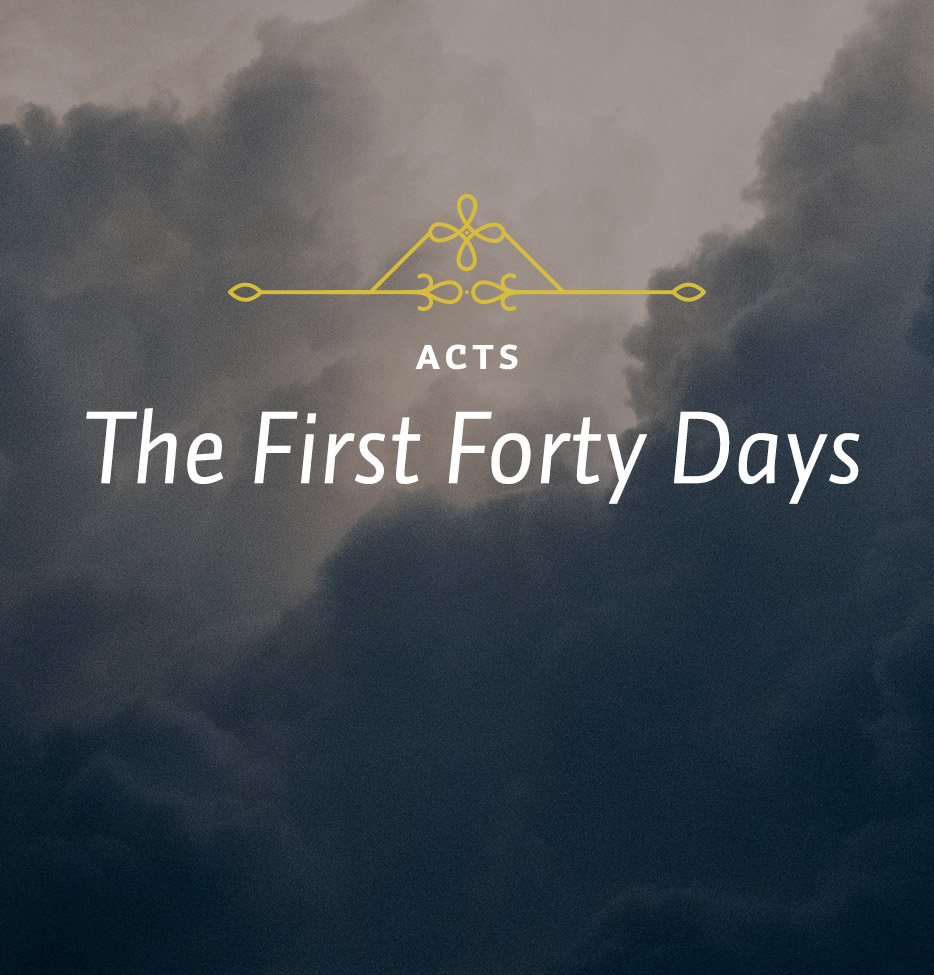The third thing we notice about these introductory verses is the missionary mandate. We find it in verses 7 and 8.
The disciples who were with Jesus in the days between His resurrection and ascension still had old-fashioned ideas, and one of these, as we know from the Gospels, was that the Kingdom of God was going to be established by political, earthly power. Their idea of the Messiah was a soldier like Judas Maccabeus (Judas the Hammer), who was going to be strong enough to drive out any occupying military forces. In these days, the land was occupied by Romans. So they were looking for a Messiah who would expel the Romans and set up the earthly kingdom of David.
They expected to reign with him in this kingdom. On one occasion, the mother of James and John approached Jesus and said, “Grant that one of these two sons of mine may sit at your right and the other at your left in your kingdom” (Matt. 20:21). She was not thinking of a kingdom in some far-off future day. She thought that Jesus was going to establish his kingdom on earth right then by political means.
Even here, after the resurrection, the disciples had these warped ideas. John Stott notes, “The verb restore shows that they were expecting a political and territorial kingdom; the noun Israel that they were expecting a national kingdom; and the adverbial clause at this time that they were expecting its immediate establishment.”1
We find them saying something like this: “Lord, we have waited a long time. We have waited through the three long years of your ministry. You obviously considered those three long years to be important. We’re not sure that they were as important as all that. We wish you had gotten the kingdom going a lot sooner. But we were patient because, after all, you are the Lord, and we are only disciples. And, of course, we went through that whole nasty business of the crucifixion when you were rejected and killed. Then we experienced the resurrection, and we’re sure you had your purpose in that, too. But enough is enough! Let’s get down to the thing that really matters. Are you at this time—now, at last, after all this waiting on our part—going to restore the kingdom?”
Jesus answered, “It is not your business to know when I am going to set up my kingdom. Your job is to be my witnesses in the world. And that is what you will be. You are going to receive power when the Holy Spirit comes upon you, and you will be my witnesses in Jerusalem, in all Judea and Samaria, and to the ends of the world.”
Believers in Christ have always been faced with two great temptations where this assignment is concerned. One is the temptation to idleness, to say, “Well, Jesus has saved me, my wife (or husband) and my children. I have a nice church. Everything is comfortable. I think I’ll just sit around and wait for Jesus to come back. When we meet on Sunday mornings, we’ll say to ourselves, ‘Lord, are you at this time going to restore the kingdom?’ We’ll be patient. We’ll wait.”
Jesus says to a church as inactive as that, “You are to be filled with the Holy Spirit, and when you are filled with the Holy Spirit you are to go out and witness to me in all the earth.” The church that is not doing that is not obeying its Lord.
The second temptation is the one the disciples were already caught up in. It is the temptation to think that we are to do the Lord’s work in the world’s way. We are to establish the kingdom politically—by law, by getting Christians into high positions in government, and by imposing our vision of society upon the world.
Of course, there is a proper place for a political and legal expression of the Christian world and life view. Christians should seek a proper public expression of their beliefs. But they must not suppose that they can bring in the Kingdom of God by imposing their views upon others. Moral reform will not come by political power or power tactics. Only the Holy Spirit can take the Gospel to the hearts and minds of men and women and change them into disciples of the Lord.
1John R. W. Stott, The Message of Acts: To the Ends of the Earth (Leicester, England: InterVarsity, 1960), 41.






